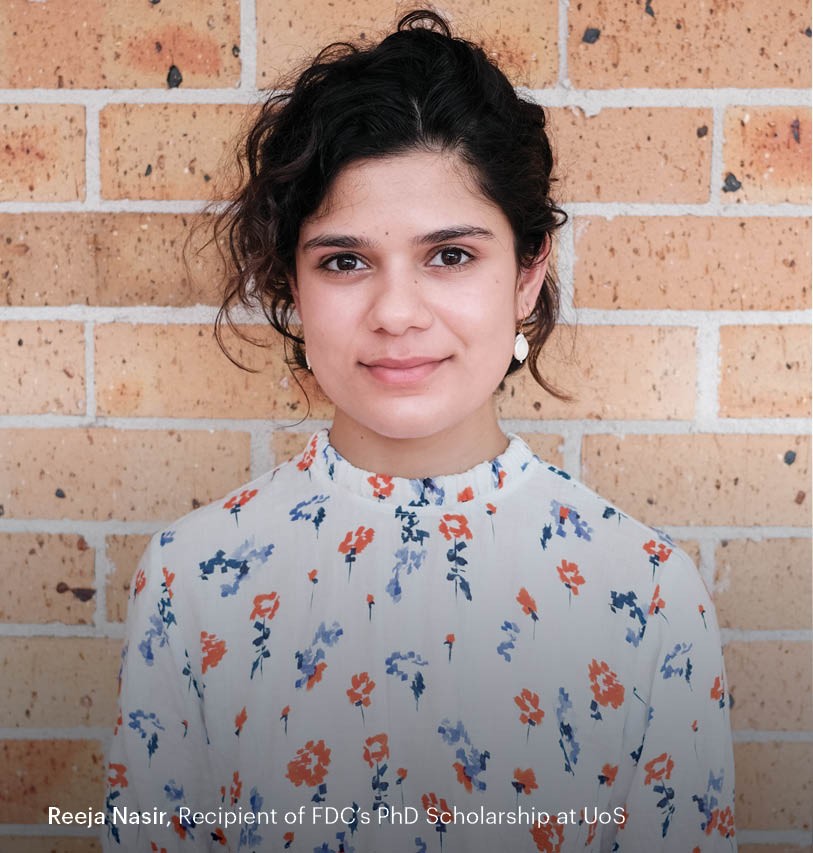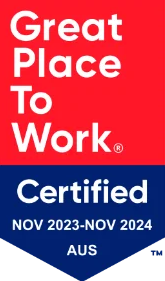At FDC we believe in contributing to community impact and that’s why we awarded Reeja the FDC PhD Scholarship. It’s worth $150,000 and aims to uncover the answers behind childhood obesity, as well as support the career of a promising young researcher.
Reeja hopes her research can unlock the knowledge to develop sustainable, cost-effective and wide-reaching prevention measures for all Australian kids.
It’s been eight months since Reeja began her search for answers. We caught up with her recently to chat about the journey so far.
1. What stage is your research project, currently?
Any studies that involve humans must go through two stages of ethical approval, so we currently have that important process underway.
We’ve done the first stage, where a committee ensures the project is ethically sound. We’re up to the second stage, which is what we call site approval. So, the two hospitals we’ll be conducting the study in are being assessed to make sure they have enough resources.
2. How would you describe the journey so far?
There’s been an extensive regulatory process, a lot of signatures to collect and with the added complication of COVID, it means there’s been delays. It’s been a challenge, but we are progressing.
When we can’t do hands-on data collection due to restrictions, we pivot our attention. We can do more background work on why we’re doing this research.
For example, I’m doing a narrative review. I’m researching the current evidence on how childhood obesity can lead to disease later in life and what interventions are present today. Even when we’re not doing hands-on research, there’s always research to do to provide us with the information and knowledge needed for problem solving and making decisions.
3. What other COVID-related challenges have you encountered?
We’re working in a hospital environment and because of that, the participants are a little more hesitant to come in.
Even though communities generally are learning to ‘live’ with COVID, hospital settings, understandably, are very much more cautious and it can make people feel very hesitant. Moving forward I need to be mindful of that.
4. How do you feel about working at the renowned Charles Perkins Centre?
The focus of the Charles Perkins Centre at the University of Sydney is to find new, collaborative solutions to chronic disease all of which have a huge human and financial impact on society. It’s incredible to be immersed in this research world, working with all my colleagues who are making big headway into these areas to find solutions. Working with this knowledge and these resources in a purely collaborative way is really supporting my PhD project.
5. What has this project taught you about how you like to work?
I’m usually quite an independent researcher. I like to have my time with something, and then I go see my supervisor and so forth. But this is the first time I’ve worked with another group – genuinely collaborated and I’m leading the project too!
I’ve learnt to get better with my communication – as a student you get used to only working with your immediate team and supervisor. But I’ve had to get much better at touching base with a whole range of people. And it’s taught me to be a little more patient, to let things take their course and not overanalyse.
6. What’s next in the research journey?
After we get our site approval, it’s just going to be about hitting the ground running. We can start contacting participants, and recruit as many as we can.
The project data collection point ends in June 2023, so I’m hoping to do as much as I can between now and then, get results, and then frantic writing will ensue.
Research made personal
For 30 years, FDC has worked hard to not only build amazing spaces but also a better future for our communities and families. Reeja’s research contributes to the health of the wider Australian community, which is why we couldn’t be prouder to be supporting her.
We’re excited to see what her research reveals in the future and to watch Reeja’s career fly higher from here.


